Each month, we feature a guest article from one of the OSS Ambassadors. This month, RHYS McCOLE explains how he is using boxing to engage teenagers in Inverclyde and Renfrewshire, and address societal issues.
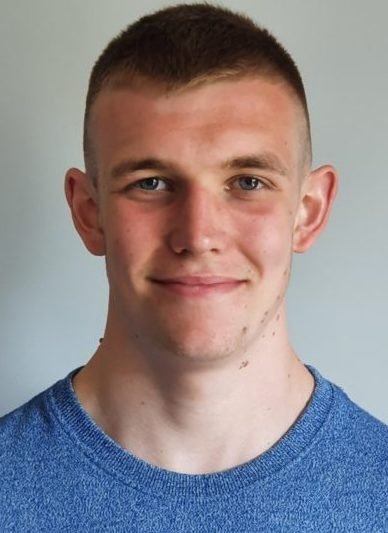
THE SWEET SCIENCE. That is how the sport of boxing is known within the sport’s fraternity, but what does that mean and what is the science of boxing?
I have being considering this recently as I work with children and young people in different schools, where the conversations are about drugs, crime, carrying weapons and generally feelings of not being part of society. Why am I there? Well, I’ve been using my own experiences and my work as a boxer and fitness instructor to make connections with young people, and the response from them has been nothing short of incredible.
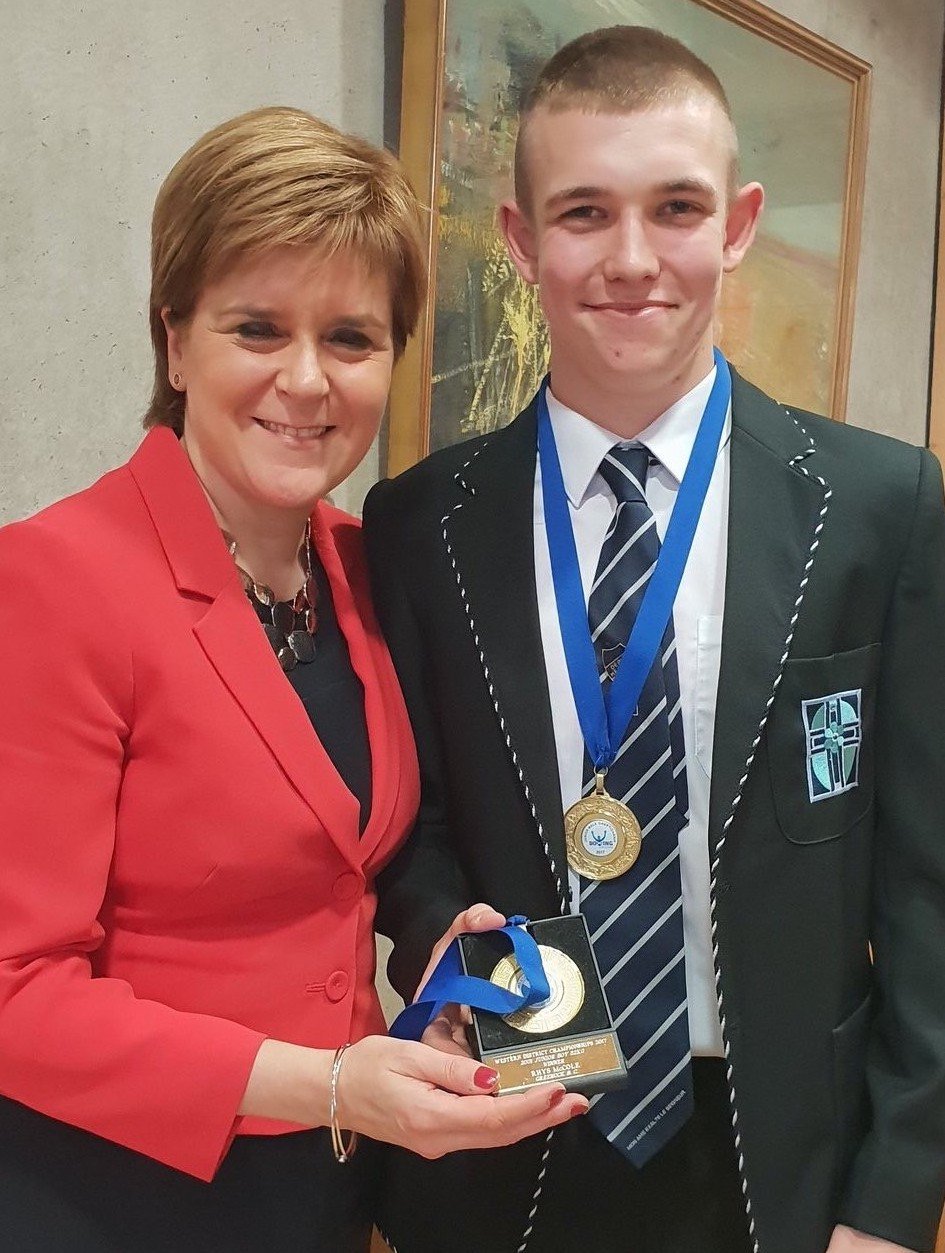 Boxing is potentially one of the most misunderstood sports, and many fear it because of the sometimes brutal elements. Many, understandably, see boxing as a violent sport. What is less obvious is how therapeutic the sport is, especially for certain conditions and disabilities.
Boxing is potentially one of the most misunderstood sports, and many fear it because of the sometimes brutal elements. Many, understandably, see boxing as a violent sport. What is less obvious is how therapeutic the sport is, especially for certain conditions and disabilities.
Why? Let me explain. So when you think of boxing, most people think of a ring and two people punching each other. Clearly, that’s what we see on TV but for me it’s something completely different. For me growing up, it was an indoor sport that I could take part in because I was extremely unwell growing up, having been born with four holes in my heart and suffering from a series of other conditions. I could not play outside like others kids for many years so boxing allowed me to socialise and to try and improve my health.
Then I found myself in a unique situation. I had been diagnosed with six disabilities, but boxing’s governing bodies do not recognise or implement measures for people with disabilities, so I found myself progressing up a ladder to national and international levels of competition. The boxing world was a bit shocked to discover that someone with so many challenges wanted to box, never mind be successful, but I just wanted to be the same as anyone else, and so I gave it a go. None of us thought I would end up winning medals, but I did.
How did that happen? Being autistic, I found the routine of boxing easy for me to follow and found individual tasks a little easier than team sports. Yet, boxing is widely considered to be the toughest and most demanding of sports, so with my poor health, how would that pan out? Well, the doctors noticed positive outcomes. My speech improved, as did my coordination, lung function and muscle mass, while my anxiety and stress were not apparent while training. The training helped my sleep pattern, and, most importantly for me, I had people to talk to. I felt part of a community for once.
So what about competing? Well, that was very interesting. There was no awareness of anyone with so many disabilities and difficulties involved in mainstream boxing, and the idea was new to those in the sport, and completely new to me. But after three years of non-stop training, I noticed that people were talking about the upcoming competitions so asked my club coach if I could box in the competition as well. He was very experienced and, initially, did not think I was quite ready. I continued to train and he spoke with my parents, explaining I needed more time to learn. They agreed but by this stage I could see I was doing well and I wanted to have the same opportunities as those around me. I was having none of it and kept pushing until they let me compete.
I had never even stepped foot inside a boxing ring or had any sparring when I took part in my first bout, but I just went for it with all the skills I knew. The outcome? I was beaten. However, I was so delighted to have done what many are afraid to do, actually compete in a boxing bout. It felt amazing; it felt like I was the same as everyone else. I was now a boxer – a unique boxer.
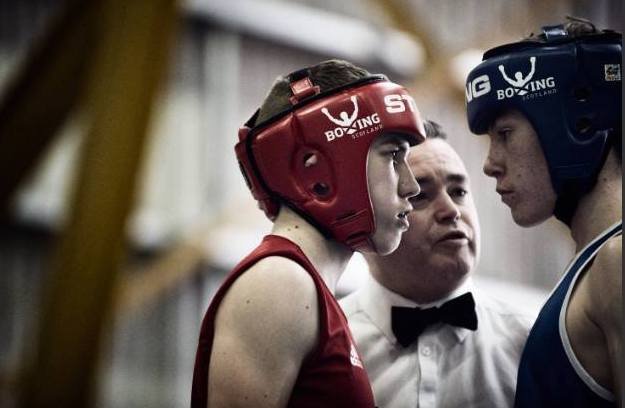 I boxed in my home town of Greenock in Inverclyde. The boxing club was close by as were my schools. It was at Notre Dame High School that I was given a lot of extra help and support, and was very fortunate to have wonderful teachers. I did find myself sometimes alone, and some teachers looked out for me. One was Mr McHugh, who sadly passed away far too young. He had seen many talented sports people come through the school, but for some reason Mr McHugh and I had a special bond. He was a Maths teacher, who loved Manchester United, and an inventive one. He would teach in his own unique way, and would spend time with me, encouraging me, helping me, and being a friend when I had few. We used to talk about the boxing, and he would put up wee news stories about my boxing successes. We used to speak about why boxing was not in mainstream physical education, and we used to speak about maybe one day changing that. When he sadly passed away, our whole community was devastated.
I boxed in my home town of Greenock in Inverclyde. The boxing club was close by as were my schools. It was at Notre Dame High School that I was given a lot of extra help and support, and was very fortunate to have wonderful teachers. I did find myself sometimes alone, and some teachers looked out for me. One was Mr McHugh, who sadly passed away far too young. He had seen many talented sports people come through the school, but for some reason Mr McHugh and I had a special bond. He was a Maths teacher, who loved Manchester United, and an inventive one. He would teach in his own unique way, and would spend time with me, encouraging me, helping me, and being a friend when I had few. We used to talk about the boxing, and he would put up wee news stories about my boxing successes. We used to speak about why boxing was not in mainstream physical education, and we used to speak about maybe one day changing that. When he sadly passed away, our whole community was devastated.
I had previously been encouraged by former Boxing Scotland Chairman Richard Thomas who was amazing to me, and, out of nowhere, he also passed away far too young. Like their families, I felt sadness at losing two inspirational people, and worried about what the future held. Where was boxing leading me? Then it clicked – both of them wanted boxing to be taught in schools. I thought, ‘you can do this Rhys – do this in their memories’. They had planted the seed; very clever people, as they probably knew that I would not let them down.
But how was I going to do it? How would I get boxing into schools? How could I convince people boxing is not the violent sport that they think? It was then I had to take a leap of faith. I had matured, it was now time to try and implement my own initiative. So, I started doing online videos during the Covid pandemic. Aimed at pupils of any school, it had a strong emphasis on including everyone and anyone. I would make sure anyone that had difficulties or disability was not only included but encouraged with adaptations in place. I was acutely aware of what can be achieved with help, support and encouragement. Mr McHugh and Richard Thomas taught me well.
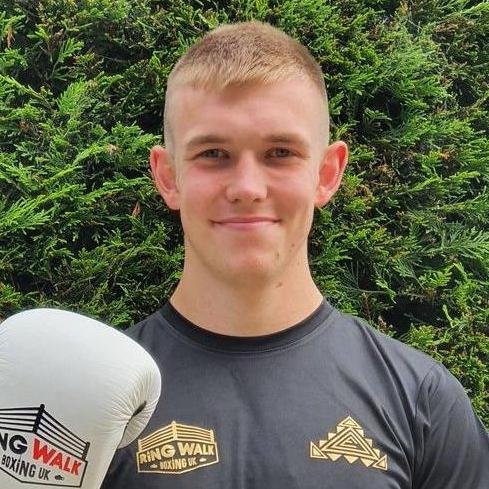 The next stage was when education re-opened from lockdowns. I had managed to navigate a business administration modern apprenticeship with Inverclyde Council, though I knew I wanted to be involved in sport so I thought ‘let’s combine both skillsets’, and I devised a plan. I started my own wee business ‘Rhys McCole Fitness’. Then, I approached the schools, and spoke to them about the different benefits of boxing, how I could adapt it to be non-contact and semi-contact. But what I spoke of was the discipline, how it provided a route for us to teach manners, respect and taking responsibility. Working with local partners, we developed anti-drugs/substance abuse messages, and sessions focused on anti-bullying, anti-weapon crime etc. I explained how in boxing you do have to be tough, but that develops us mentally as well as physically. It helps with stress, anxiety, lack of socialisation, which is a big issue particularly after Covid, and the sport frowns on bullying. It is easy to follow, can be adapted to and for anyone, and be completely inclusive if the coaching is good enough.
The next stage was when education re-opened from lockdowns. I had managed to navigate a business administration modern apprenticeship with Inverclyde Council, though I knew I wanted to be involved in sport so I thought ‘let’s combine both skillsets’, and I devised a plan. I started my own wee business ‘Rhys McCole Fitness’. Then, I approached the schools, and spoke to them about the different benefits of boxing, how I could adapt it to be non-contact and semi-contact. But what I spoke of was the discipline, how it provided a route for us to teach manners, respect and taking responsibility. Working with local partners, we developed anti-drugs/substance abuse messages, and sessions focused on anti-bullying, anti-weapon crime etc. I explained how in boxing you do have to be tough, but that develops us mentally as well as physically. It helps with stress, anxiety, lack of socialisation, which is a big issue particularly after Covid, and the sport frowns on bullying. It is easy to follow, can be adapted to and for anyone, and be completely inclusive if the coaching is good enough.
The school meetings went well, and it was heart-warming that teachers believed in me. They listened and trusted in me. As someone who had received so much help and support in my life, I wanted to help others.
This year, when I received my first official enquiry about starting, and subsequent meeting, I sold boxing not as a sport but a beneficial tool to steer pupils, staff and even teachers into a healthier lifestyle, be that improved fitness, increased attendance, better behaviour, setting better examples or simply providing help and support for one another. It was important too that we didn’t leave anyone out that wanted to try.
Well, from that point on it has snowballed. Before I knew it, pupils were queuing up at the headteacher’s door asking to go to ‘the boxing’. It has been a whirlwind. Now, I work with four schools within St Columba’s High in Gourock, Notre Dame High School Greenock, All Saints Primary Greenock, and the Kibble School in Paisley, where we are about to start. We even have teachers buying other teachers boxing gloves! I show everyone respect, and I am delighted that I am also treated with respect. I receive regular feedback and so far it has all been positive with pupils, teachers and other school staff all involved, and positively surprised at the social and health benefits they are finding.
To finish off this first column for the OSS, I would like everyone to know something. I owe enormous gratitude to a lot of people who have supported me and helped me get to this exciting stage, starting with all the staff and teachers through my nursery, primary and secondary schools. My local council in Inverclyde provided me with employment and my Modern Apprenticeship, while Young Scot and SportScotland opened doors for me when I got into the ‘Young People’s Sport panel.’ Fighting for Autism, Enable Scotland, Commando X fit mentoring and the Observatory of Sport Scotland have all helped me with mentoring, guiding, listening and including me beside so many inspirational people.
Most importantly I have to thank my family, who have been through some pretty traumatic times with me. Now, I could not be happier. Once a wee boy, in a world of his own, struggling with disabilities and being helped through life. Listening all the time, learning all the time, being guided all the time, being moulded all the while.
I hope Richard Thomas and Mr McHugh are smiling down from heaven, that their families know the positive input they had on me, and that they are pleased to see boxing being developed as a tool to help young people, and making a big, positive difference to some. They wanted me to get boxing in our schools. Well, we did it. Now, we plan to grow that and help more people like me to live life to the full. A ‘sweet science’ boxing really is.


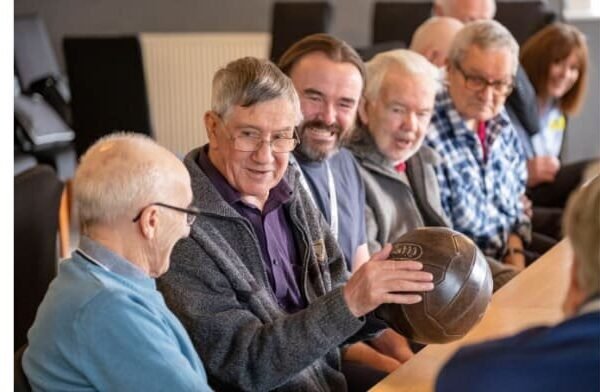

Thought Piece from Charlie Raeburn for Reform Scotland